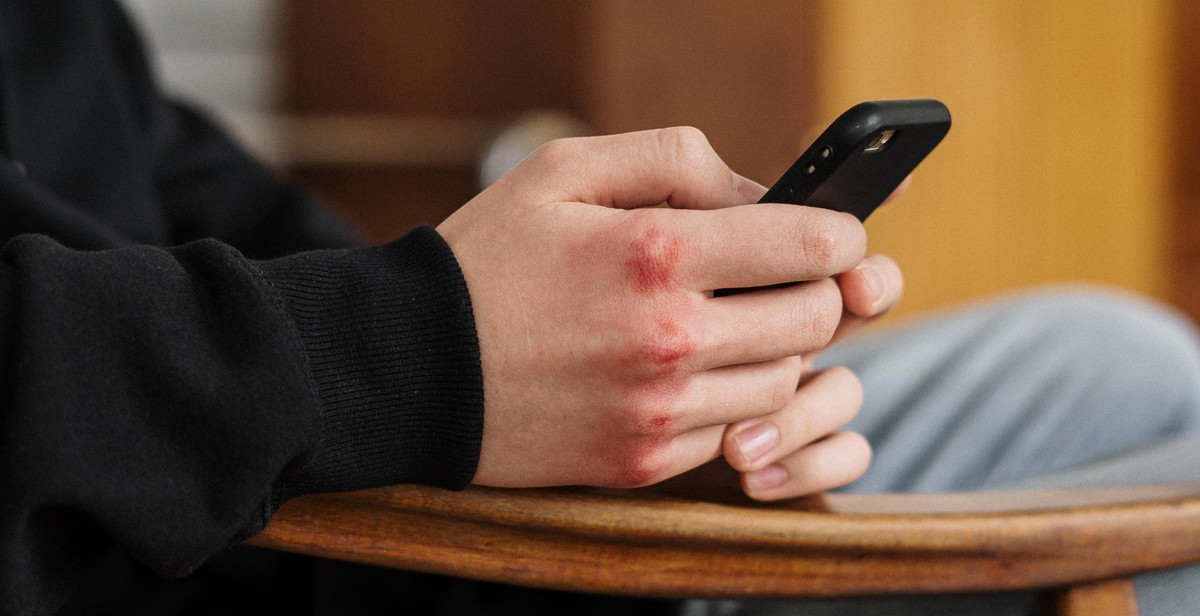How to Heal from Past Relationship Trauma
Relationships are an integral part of our lives, and they shape our personalities and emotions. However, not all relationships are healthy, and some can be traumatizing. Whether it’s a toxic relationship, a breakup, or infidelity, the emotional scars of past relationships can last for years, and it can be challenging to move on.
As a love and relationships psychology guru, I have seen countless people struggle with past relationship trauma. The good news is that healing is possible, and it starts with acknowledging the pain and taking active steps towards recovery. In this article, I will share my personal experience and professional insights on how to heal from past relationship trauma.
The Importance of Healing from Past Relationship Trauma
Ignoring past relationship trauma can have severe consequences on your mental and physical health. It can lead to anxiety, depression, low self-esteem, and even physical ailments. Moreover, it can negatively impact future relationships and prevent you from experiencing love and happiness.
Therefore, it’s crucial to address past relationship trauma and take steps towards healing. It’s not an easy process, but it’s worth it in the end. With patience, self-love, and professional guidance, you can overcome past relationship trauma and create a healthy and fulfilling life.

Understanding Past Relationship Trauma
Relationship trauma is a type of emotional injury that occurs due to negative experiences in past relationships. These experiences can leave lasting emotional scars that can affect one’s ability to form healthy relationships in the future. Understanding the causes and types of relationship trauma is an essential step towards healing and moving on.
What is Relationship Trauma?
Relationship trauma is a psychological injury that results from negative experiences in past relationships. It can be caused by a variety of factors, including emotional, physical, or sexual abuse, neglect, abandonment, infidelity, or a toxic dynamic between partners. These experiences can leave a person feeling hurt, betrayed, and unable to trust others in future relationships.
Types of Relationship Trauma
There are several types of relationship trauma that can occur, including:
- Physical Trauma: This refers to any type of physical abuse, such as hitting, slapping, or pushing, that occurs within a relationship. Physical trauma can leave lasting physical and emotional scars.
- Emotional Trauma: Emotional trauma is caused by emotional abuse, such as insults, belittling, and manipulation. It can be just as damaging as physical trauma and can lead to long-term emotional distress.
- Sexual Trauma: This type of trauma occurs when one partner forces or coerces the other into unwanted sexual activity. It can leave the victim feeling violated, ashamed, and powerless.
- Neglect: Neglect occurs when one partner fails to meet the emotional or physical needs of the other. This can lead to feelings of abandonment and low self-worth.
- Abandonment: Abandonment occurs when a partner leaves without warning or explanation. This can leave the other partner feeling rejected and alone.
Understanding the types of relationship trauma can help individuals identify the root cause of their emotional pain and take steps towards healing and moving on.
| Relationship Trauma | Causes |
|---|---|
| Physical Trauma | Physical abuse, such as hitting, slapping, or pushing |
| Emotional Trauma | Emotional abuse, such as insults, belittling, and manipulation |
| Sexual Trauma | Forced or coerced unwanted sexual activity |
| Neglect | Failure to meet emotional or physical needs |
| Abandonment | Partner leaves without warning or explanation |
Healing from past relationship trauma is a process that takes time and effort. By understanding the causes and types of relationship trauma, individuals can take steps towards healing and moving on towards a healthier, happier future.

Signs of Relationship Trauma
Emotional Symptoms
Emotional symptoms of relationship trauma can manifest in different ways, including:
- Anxiety: Feeling nervous, worried, or apprehensive about relationships or being vulnerable with someone.
- Depression: Feeling sad, hopeless, and helpless about oneself or relationships in general.
- Fear: Being afraid of intimacy, commitment, or getting hurt again.
- Anger: Feeling angry or resentful towards oneself, the ex-partner, or relationships in general.
- Guilt: Blaming oneself for the failure of the relationship or feeling responsible for the trauma.
- Shame: Feeling embarrassed or unworthy of love and affection due to the trauma.
Behavioral Symptoms
Behavioral symptoms of relationship trauma can also vary, and may include:
- Self-isolation: Withdrawing from social situations, friends, and family due to fear of rejection or judgment.
- Avoidance: Avoiding any reminders of the past relationship or anything that triggers the trauma.
- Sabotage: Sabotaging new relationships or potential partners due to fear of getting hurt again.
- Obsessive thoughts: Constantly thinking about the ex-partner, the trauma, or the negative aspects of relationships.
- Compulsive behaviors: Engaging in unhealthy coping mechanisms such as substance abuse, overeating, or overspending.
- Difficulty trusting: Having trust issues with future partners, or being overly suspicious or jealous.
| Emotional Symptoms | Behavioral Symptoms |
|---|---|
| Anxiety | Self-isolation |
| Depression | Avoidance |
| Fear | Sabotage |
| Anger | Obsessive thoughts |
| Guilt | Compulsive behaviors |
| Shame | Difficulty trusting |

How Relationship Trauma Affects Future Relationships
As a love and relationships psychology guru, I have seen first-hand how past relationship trauma can affect future relationships. Relationship trauma can come in many forms, including physical, emotional, or verbal abuse, neglect, or abandonment.
When we experience trauma in a relationship, it can deeply impact our sense of trust and security. We may develop a fear of intimacy or become overly dependent on our partners. This can lead to a cycle of unhealthy relationships, where we either choose partners who are emotionally unavailable or push away partners who are too close.
The Impact of Attachment Styles
Our attachment style, which is formed in childhood based on our relationships with our primary caregivers, can also play a significant role in how we approach relationships as adults. Those with insecure attachment styles, such as anxious or avoidant attachment, may struggle with forming healthy, secure relationships.
Anxious attachment can lead to a fear of abandonment and a need for constant reassurance, while avoidant attachment can result in a fear of intimacy and a tendency to push others away. These attachment styles can be triggered by past relationship trauma and can make it difficult to form healthy, fulfilling relationships in the future.
The Importance of Healing and Self-Awareness
If you have experienced past relationship trauma, it is essential to take the time to heal and work on developing self-awareness. This may involve therapy, journaling, or other forms of self-reflection.
It is also important to recognize your patterns in relationships and take steps to break the cycle of unhealthy dynamics. This may involve setting boundaries, communicating your needs, and learning to trust again.
By taking the time to heal from past relationship trauma and developing self-awareness, you can break the cycle of unhealthy relationships and create a more fulfilling and secure future for yourself.

Steps to Heal from Past Relationship Trauma
Healing from past relationship trauma can be a challenging process, but it is essential for moving forward and finding happiness in future relationships. Here are five steps you can take to heal from past relationship trauma:
1. Acknowledge the Trauma
The first step in healing from past relationship trauma is to acknowledge that it exists. It can be tempting to minimize or ignore the impact that past relationships have had on us, but this only prolongs the healing process. Take time to reflect on how past relationships have affected your thoughts, emotions, and behaviors.
2. Seek Professional Help
Working with a therapist or counselor can be incredibly helpful in healing from past relationship trauma. A mental health professional can provide a safe and supportive space to process emotions, develop coping strategies, and challenge negative beliefs. They can also provide valuable insights and guidance as you navigate the healing process.
3. Practice Self-Care
Self-care is essential in healing from past relationship trauma. This can include activities such as exercise, meditation, journaling, or spending time with loved ones. It’s important to prioritize your physical and emotional well-being during the healing process.
4. Challenge Negative Thoughts and Beliefs
It’s common to develop negative thoughts and beliefs about ourselves and relationships after experiencing trauma. These beliefs can be limiting and prevent us from finding happiness in future relationships. Challenge these negative thoughts by examining the evidence and creating more balanced perspectives.
5. Set Healthy Boundaries
Setting healthy boundaries is crucial in healing from past relationship trauma. This can include setting limits on how much time you spend with certain people or avoiding situations that trigger negative emotions. By setting boundaries, you can protect yourself from further harm and prioritize your healing process.
Healing from past relationship trauma is a process that takes time and effort. By acknowledging the trauma, seeking professional help, practicing self-care, challenging negative thoughts and beliefs, and setting healthy boundaries, you can begin to heal and move forward towards healthier relationships.

Conclusion
Healing from past relationship trauma is a journey that requires patience, self-love, and self-care. It is not an overnight process, but with time and effort, it is possible to overcome the pain and move forward with a healthy and fulfilling life.
Key takeaways
- Recognize the signs of past relationship trauma and seek help if needed
- Practice self-love and self-care to boost your confidence and self-esteem
- Be patient and kind to yourself as you heal
- Set boundaries and communicate your needs in future relationships
- Forgive yourself and others to let go of the pain and move forward
Final thoughts
Healing from past relationship trauma is a courageous and empowering process. It requires facing your fears, processing your emotions, and taking steps towards a brighter future. Remember that you are not alone, and seeking help from a therapist or support group can be a valuable tool in your healing journey.
 |
For further reading on the topic, check out the book “Healing from Trauma: A Survivor’s Guide to Understanding Your Symptoms and Reclaiming Your Life” by Jasmin Lee Cori. |
Remember that you deserve love, happiness, and a fulfilling life. Keep moving forward, and don’t let past relationship trauma hold you back.
